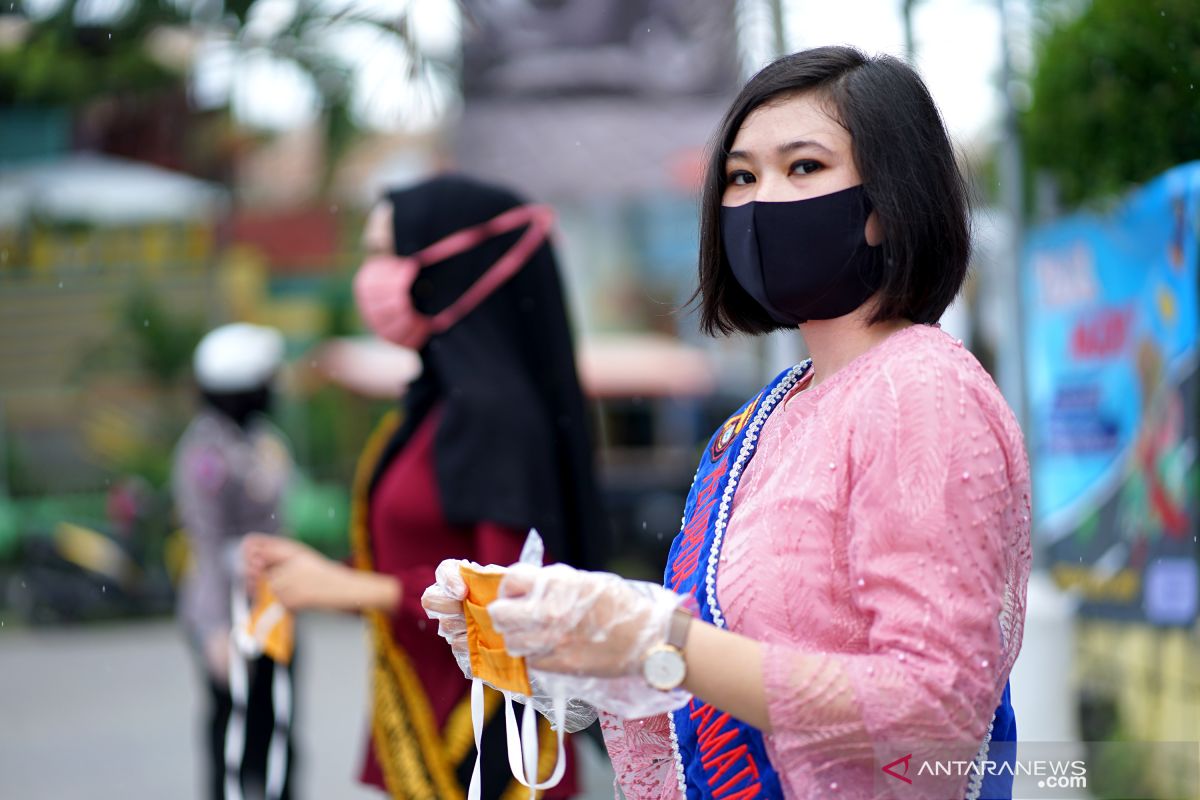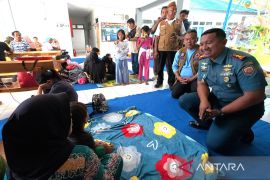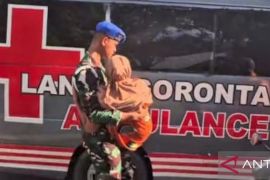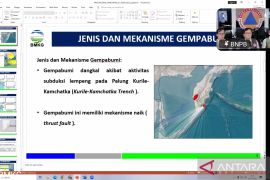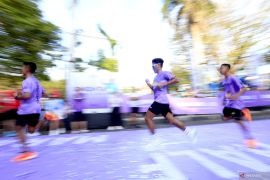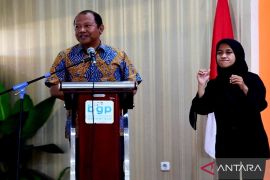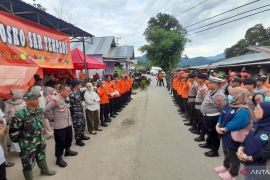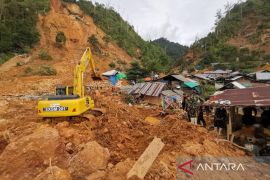The users of modes of transportation should abide by the large-scale social restriction measures, such as wearing face masks and practicing physical distancingGorontalo (ANTARA) - The Gorontalo provincial government, on Monday, began enforcing large-scale social restrictions for a period of 14 days until May 17 to break the chain of the novel coronavirus disease (COVID-19) pandemic.
The guidelines for enforcing this large-scale social restriction policy have been stipulated in Gorontalo Governor Rusli Habibie's Regulation Number 15 of 2020.
Governor Habibie expounded that enforcement will come into full effect after the related authorities disseminate related information to community members for two days, starting from Tuesday.
The governor called on the public, at large, to respect and implement large-scale social restriction measures, so that the spread of the coronavirus disease can soon be contained.
Indonesian Health Minister's Regulation Number 9 of 2020 on Large-Scale Social Restrictions calls for restriction on religious and public activities.
In Gorontalo, schools and workplaces are closed; operations of modes of public transportation are restricted; and outdoor activities in public areas and facilities have also been limited.
Related news: President calls for stringent and effective implementation of PSBB
Related news: President urges close monitoring of COVID-19 transmission clusters
"The users of modes of transportation should abide by the large-scale social restriction measures, such as wearing face masks and practicing physical distancing," he noted.
The residents of Gorontalo are allowed to venture outside from 6 a.m. to 5 p.m. local time after which all must stay at home, he stated.
The Gorontalo provincial government officially announced its confirmed COVID-19 cases on April 9. The province, so far, has 15 COVID-19 patients, of which 12 remain hospitalized, two others have fully recovered, while the other one died of this deadly virus.
The coronavirus outbreak initially struck the Chinese city of Wuhan at the end of 2019, but it then spread to various parts of the world, including countries in the Asia-Pacific region.
The Indonesian government officially announced the country's first confirmed cases on March 2.
Since then, the central and regional governments nationwide have striven persistently to flatten the curve by imposing healthcare protocols and social restrictions.
In breaking the chain of this novel coronavirus disease that has impacted the purchasing power of numerous families in Indonesia, large-scale social restrictions are also applied in several other cities, including Jakarta, Bogor, Depok, Tangerang, and Bekasi.
The central government has also banned homebound travel, or locally known as "mudik," during the fasting month of the Ramadhan and Idul Fitri holiday seasons.
Related news: Over 70 thousand Indonesian migrant workers return home amid COVID-19
Related news: Every region should set measurable target in applying PSBB: President
EDITED BY INE
Translator: Rahmad Nasution
Editor: Fardah Assegaf
Copyright © ANTARA 2020
